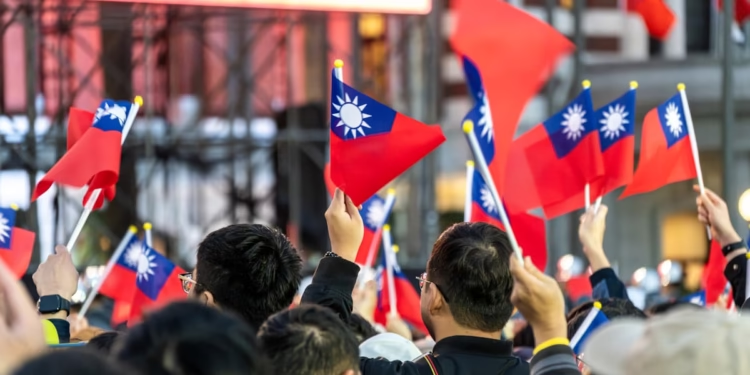Taiwan’s prime minister has approved a six-month pilot study to explore establishing a national bitcoin reserve using seized cryptocurrency, according to legislator Dr. Ju-chun Ko. The proposal, developed in partnership with bitcoin infrastructure firm JAN3, would assess whether confiscated BTC could complement Taiwan’s $600 billion in foreign reserves and 432 tonnes of gold holdings.
The initiative arrives at a time when Bitcoin remains above $102,000, despite being off its all-time highs — a signal of its enduring strength amid market volatility.
Lawmakers Push for Crypto-Backed Stability
Dr. Ju-chun Ko emphasized that the Taiwan national Bitcoin reserve could serve as a hedge against Taiwan dollar volatility. In a statement before parliament, he said,
“In a time of global uncertainty and rising inflation, a Taiwan national Bitcoin reserve could provide an alternative safeguard against currency debasement and economic shocks.”
The proposal has gained traction amid growing geopolitical tension and declining confidence in traditional assets. Ko’s plan suggests that BTC could complement the Central Bank’s $600 billion in foreign reserves and 432 tonnes of gold, both of which increased in 2025 as global instability intensified.
Partnership With Samson Mow’s JAN3 Group
The Taiwan national Bitcoin reserve proposal was developed in partnership with JAN3, the Bitcoin infrastructure firm led by Samson Mow, one of Bitcoin’s most vocal advocates. Mow, who has advised El Salvador on its BTC adoption strategy, commented:
“Taiwan’s exploration of a national Bitcoin reserve signals a new era in monetary independence. Bitcoin’s finite supply and borderless nature make it a natural choice for nations seeking resilience.”
Mow’s collaboration adds credibility to Taiwan’s plan, aligning it with the global movement of sovereign Bitcoin strategies spearheaded by countries like El Salvador and Bhutan.
While the Taiwan national Bitcoin reserve idea has strong political backing, the Central Bank has taken a cautious stance. Officials have confirmed plans for a pilot study but stressed that BTC will not yet be treated as a direct alternative to fiat reserves.
The Central Bank has historically shown vigilance toward crypto assets, especially stablecoins, calling for stricter regulations to prevent illicit financial activities. Still, the new BTC initiative signals a willingness to reconsider Bitcoin’s role within a regulated, government-controlled framework.
Government Entities: Silent Bitcoin Whales
Globally, government entities now hold an estimated 644,342 BTC, primarily acquired through seizures. Unlike private investors, state holders face little pressure to sell, often keeping their BTC long-term.
El Salvador and Bhutan are exceptions — they actively buy and mine BTC, rather than accumulating through confiscations. If implemented, a Taiwan national Bitcoin reserve would place the country among a growing list of nations recognizing Bitcoin as a macroeconomic tool rather than a speculative asset.
Though there’s currently no public data on Taiwan’s BTC holdings, analysts suggest the country could already possess a significant amount through law enforcement actions. China, by comparison, controls around 190,000 BTC, though without a formal reserve strategy.
Bitcoin’s Institutional Shift Continues
The creation of a Taiwan national Bitcoin reserve would underscore a broader global trend — the transition of Bitcoin ownership from retail investors to large-scale institutional and sovereign entities.
In 2025, whales and corporate treasuries continued absorbing BTC, even during sell-offs, reinforcing Bitcoin’s role as a store of value. As derivative markets expand, fewer long-term holders are willing to part with their coins, solidifying BTC’s reputation as a hedge against monetary instability.
Analysts believe Taiwan’s exploration of a national Bitcoin reserve could serve as a model for other Asian economies. If the pilot program proves successful, Taiwan may join the ranks of crypto-forward nations positioning BTC as a core component of financial sovereignty.
As Samson Mow concluded, “Bitcoin isn’t just a speculative asset — it’s the foundation for the next generation of national reserves. Taiwan’s move could redefine what it means to be economically secure in the 21st century.”
Whether the Taiwan national Bitcoin reserve becomes reality or remains a pilot project, one thing is clear: the island nation is no longer standing on the sidelines of the Bitcoin revolution.











